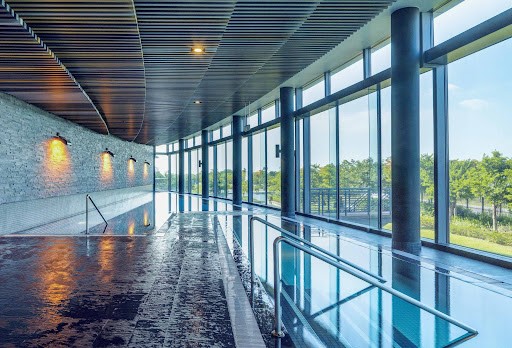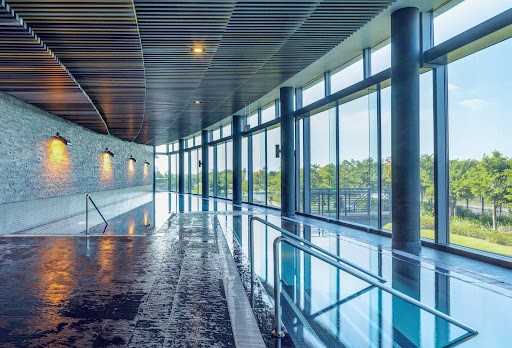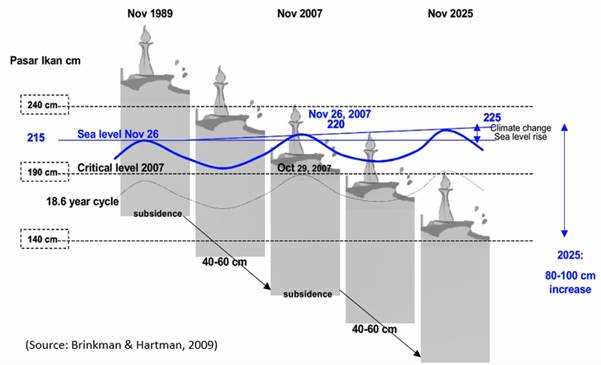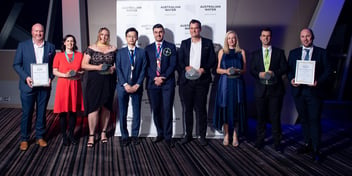Celebrating World Water Week with an International Showcase

While Australia’s borders are currently closed, the Victorian YWPs have thought outside the box with a pilot International Showcase on our neighbours in the Asia-Pacific by bringing the world to us for World Water Week. Read on for more fascinating insights on Hong Kong and Jakarta and the water challenges they face.
In recognition of World Water Week 2021, the Victorian Australian Water Association’s young water professionals (YWP) organised a pilot International Showcase webinar focusing on water issues for dense and compact Hong Kong and the world’s fastest sinking city of Jakarta. This webinar provided plenty of food for thought on long term water strategies and circular economy innovations for Hong Kong and also the wicked problems on human rights to water and livelihoods for Jakarta which were summarised across four case studies. Many thanks to our diverse panellists Gary Yip, David Pegg, Thanti Octavianti, Katrina Charles, Emanuele Lobina, and Marwa Marwa from across government, consultancies and academia for these fascinating insights which are shared below!
Case Studies 1&2: Hong Kong
First off we had Gary Yip from the HK Water Supplies Department who gave us an insight into how HK is preparing to ensure water security into a climate change affected future with a Total Water Management Strategy. While HK was ahead of the curve in the 1970s with a dual-pipe system and utilising seawater for toilet flushing (accounting for ~24% of HK’s water usage), HK is further innovating with intelligent water networks to quickly identify leaks and also with community education on water as a scarce resource (and yes, they also have a WELS program in place).
This was followed up with David Pegg from Arup to cover off the wastewater treatment side of things and the innovative “T-Park” (T for transformation) project which was HK’s first waste to energy treatment plant and as such it was designed to be a landmark from the get-go and has integrated educational and spa facilities (from the excess thermal heat) to encourage the public to get acquainted with how wastewater is treated. As a closed-cycle facility, T-Park also epitomises the circular economy principle where the only thing sent off site is excess electricity from the waste to energy side. To cap off this good news story, the creation of this plant also allowed for vast improvements to the water quality of HK’s famous Victoria Harbour allowing for the resumption of the Cross-Harbour Swimming Race which had not been run since the 1970s.
 T-Park – not your average wastewater treatment plant.
T-Park – not your average wastewater treatment plant.
Case Studies 3 & 4: Jakarta
Following on from Hong Kong, we then teleported to Jakarta where Thanti Octavianti (from the University of West of England via recording) and Katrina Charles (from the University of Oxford as our panellist) went on to discuss the politics in solving Jakarta’s problem of being the world’s fastest sinking city. In a classic case of policy and science disconnect, the current proposed solution of a massive seawall was identified as an expensive solution to solve the issue of coastal flooding but might not necessarily fix the root cause which was overextraction of groundwater causing rapid land subsidence. Unfortunately as with all wicked problems, there was no easy answer as a seawall was seen by the government as the potential best way forward to attract private investment (and potentially development of newly reclaimed islands) but was resisted against by protestors and only temporarily halted due to issues with corruption.
And to round out our session, we were joined by Emanuele Lobina (from the University of Greenwich) and Marwa Marwa (from Universitas Gadjah Mada) to discuss governance and ownership issues of water utilities in Jakarta and what it means for human rights to access safe drinking water. While we’re often told that privatisation can bring about innovation and efficiencies, this presentation reminded us that it is not always the case and for Jakarta while it did stimulate initial private investment, there were concerns over humans rights and access to water for all leading to court cases (and initial victories for those in favour of remunicipalisation) but ended up with transition of ownership to local private firms instead. While it may not be the good news story, it serves as a reminder that sometimes privatisation is not the best option and if privatisation is the path chosen, strong measures must be in place to ensure human rights in access to water for all, there is no undue political interference and corruption, and that there is a strong economic regulator that can act in the long-term interests of customers and not as a shield for the regulated entities!
 A rapidly sinking Jakarta to the point where its National Monument will potentially end up under sea level by 2025.
A rapidly sinking Jakarta to the point where its National Monument will potentially end up under sea level by 2025.
If anyone has future ideas for Vic YWP events, feel free to reach out to any of our friendly Vic AWA YWP committee members as we endeavour to connect, share and inspire all members of Australia's largest water network!
by Christopher Lee, Senior Policy Advisor, Water and Catchments, Department of Environment, Land, Water and Planning
A big thank you to our AWA VIC YWP committee volunteers; our MC and event lead Christopher Lee supported by Casey Furlong who together made the webinar happen and the Department of Environment, Land, Water and Planning for their support.

